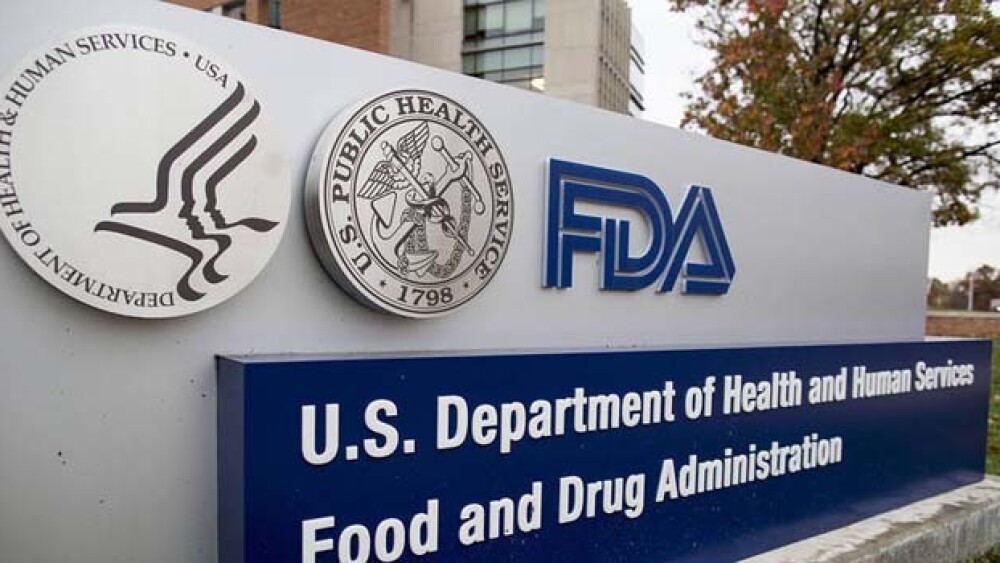The collaboration will establish a study protocol with an initial focus on breast cancer to provide the regulatory agency with information on the evolving treatment landscape, including insight on treatment variation within defined subpopulations of patients with the disease.
Precision medicine tech company COTA, Inc. announced a partnership with the U.S. Food and Drug Administration (FDA) to fuel a deeper understanding of cancer treatment through real-world evidence.
The two-year research collaboration is with the FDA’s Information Exchange and Data Transformation (INFORMED) Program, the agency’s data science and technology incubator supporting regulatory science research. The collaboration aims to establish a study protocol with an initial focus on breast cancer. The program is designed to provide the FDA with information on the evolving treatment landscape, including insight on treatment variation within defined subpopulations of patients with the disease, COTA said this morning.
Clinical trial enrollment for cancer patients is historically low, with only 3 to 5% of adult cancer patients enrolled. This research collaboration agreement will support a better understanding of the experience of a broader patient population in cancer care, COTA said. The program will begin with breast cancer, creating a depository of real-world observational evidence for the FDA, including treatment and outcome differences among the general population of breast cancer patients.
In its announcement this morning, COTA said that as the project with the FDA advances, the scope of the research could broaden and include other cancer types. It could explore disease characteristics, treatment patterns, and patient outcomes for the broader application of precision medicine.
“As the oncology and precision medicine landscape continues to rapidly evolve, we are excited to be on the front lines, aiding in developing a strong understanding of the functions of RWE and improving the lives of cancer patients everywhere,” Mike Doyle, chief executive officer of COTAs said in a statement. “We’re honored to be partnering with the FDA to do our part in improving care for patients and helping to shape regulatory decision making.”
The FDA released a strategic framework for the use of real-world evidence at the end of 2018 that indicated how the regulatory agency plans to use real-world data to improve regulatory decisions. Real-world evidence, also known as real-world data, centers on the collection of information about a drug’s safety and efficacy outside of the structure of a clinical trial. Earlier this year, the FDA and Roche’s Flatiron Health Program expanded a two-year-old collaboration agreement to gain a better understanding of how real-world-evidence derived from de-identified patient datasets curated from electronic health records, can support regulatory decision-making. Since the agreement was first struck, the FDA and Flatiron have explored the use of real-world evidence to generate insights into cancer treatment trends and clinical outcomes in the United States.
COTA said the real world evidence generated from the collaboration will be “enriched” using the company’s COTA Nodal Address (CAN) patient classification system. The CAN will allow for “deeper insights and greater understanding of the variance of patient treatment and outcomes,” New York-based COTA said.
In 2018, there were more than 332,630 new cases of breast cancer diagnosed in the United States. There were also new treatments approved to treat the disease, including Novartis’ Piqray, which was approved this week for patients with a PIK3CA mutation in HR+/HER2- advanced breast cancer. The FDA said further data is necessary to understand how such drugs impact patients outside of clinical trials. This collaboration provides a growing real-world observational database for the FDA, allowing for an improved understanding of treatment and outcome differences among the general population of patients with breast cancer, COTA noted.
Sean Khozin, director of the FDA’s INFORMED program said it is typical for clinical trials to have strict eligibility criteria, which means they do not always reflect the “range of characteristics of patients in the real world.”
“Real-world data provides an opportunity to improve our understanding of the experience of a broader patient population in support of developing tailored treatment decisions at the point of routine care,” Khozin said in a statement.





